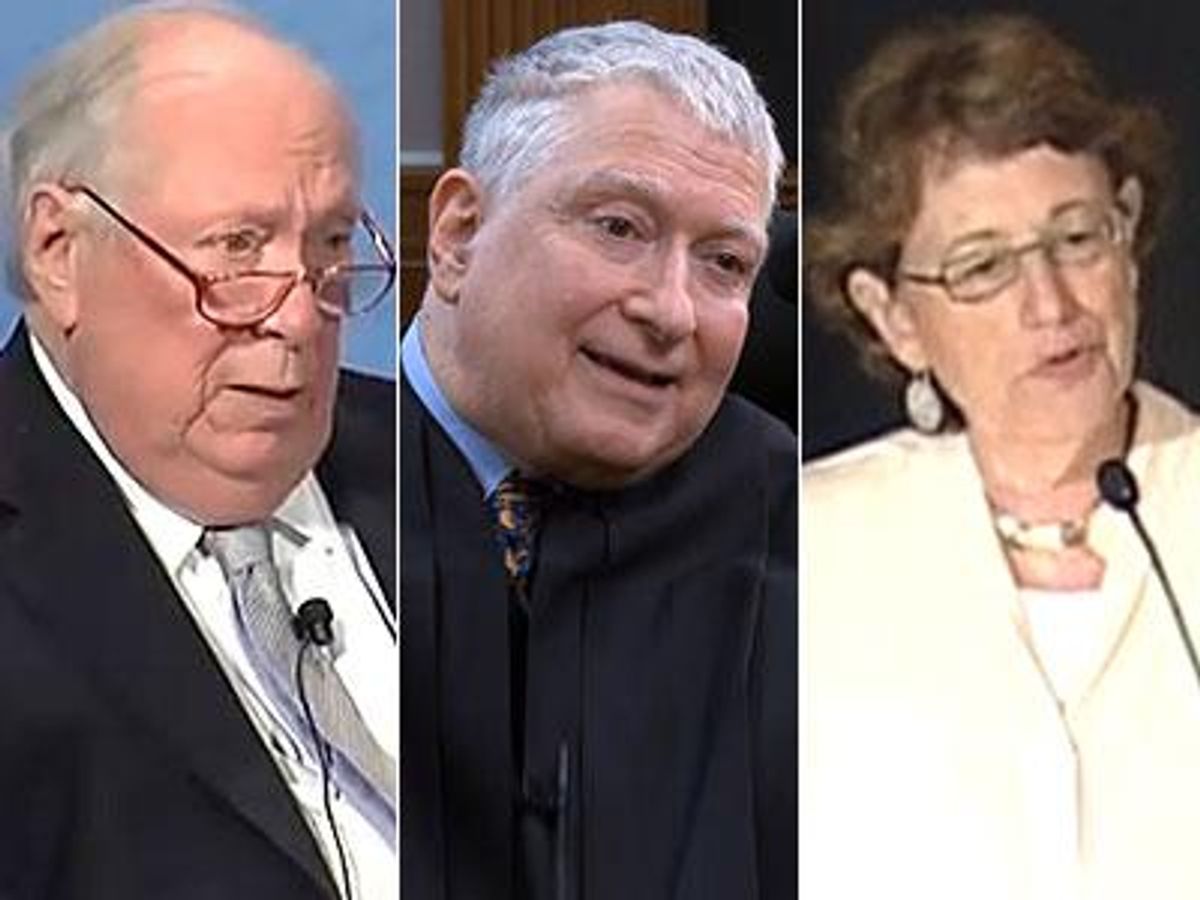The Ninth Circuit Court of Appeals this week announced the randomly selected three-judge panel that will hear oral arguments in several major marriage equality cases next week. Judging by the previous rulings of those justices, equality advocates have reason to be hopeful for another victory in federal court.
On Monday, judges Stephen Reinhardt, Ronald M. Gould, and Marsha S. Berzon will hear arguments about legal marriage equality in Nevada, Idaho, and Hawaii. All three judges have ruled favorably on LGBT-related issues in the past.
Judge Reinhardt has the most impressive history of the three when it comes to weighing in on queer cases. He wrote the 2012 opinion that upheld out district judge Vaughn Walker's conclusion that California's Proposition 8 was unconstitutional. Significantly, Reinhardt also wrote the opinion in SmithKline Beecham v. Abbott Labs.That case isn't quite as well-known, but it's likely to have a major impact on next week's round of hearings.
Reinhardt's SmithKline ruling had the effect of heightening the level of review the Ninth Circuit uses in cases concerning discrimination on the basis of sexual orientation. That's important, because in 2012, a district court judge ruled that under a rational basis standard, Nevada's marriage ban does not violate the U.S. Constitution. But in the SmithKline ruling earlier this year, which involved the dismissal of a gay juror from an antitrust case, the Ninth Circuit ruled that discrimination against LGBT people is subject to heightened scrutiny.
The district court's decision in Nevada is one of the three rulings being appealed to the Ninth Circuit Monday. The Ninth Circuit could readily apply its own legal precedent set by SmithKline to the Nevada case, thereby holding state officials to a higher burden of proof than the district court did regarding Nevada's marriage discrimination.
Judge Gould has also ruled on a major LGBT case involving heightened scrutiny: Witt v. Department of Air Force. That case involved Maj. Margaret Witt, a former Air Force flight nurse who was discharged under the military's ban on out gay and lesbian service members known as "don't ask, don't tell." Though Witt's case was initially dismissed in district court, Gould authored a Ninth Circuit ruling that a discharge under DADT must be subject to heightened scrutiny. He based that decision in part on the Supreme Court's 2003 decision in Lawrence v. Texas, which overturned state antisodomy laws.
Judge Berzon, a Clinton appointee, joined with Reinhardt on the SmithKline ruling. Though she hasn't participated in any other cases directly involving LGBT issues, Berzon's record has tended toward the progressive. Her law degree is from the University of California, Berkeley; she ruled against an Arizona law that defunded Planned Parenthood; and she represented labor unions and women's groups in private practice, according to the American Bar Association.
It would appear that the panel for Monday's oral argument is decidedly favorable to marriage equality. That could mean a repeat of the recent arguments involving Wisconsin and Indiana, when another three-judge panel on a different federal appeals circuit subjected anti-equality lawyers to intense questioning. Monday's Ninth Circuit argument will almost certainly yield some similarly electrifying moments, and audio recordings should be available here by mid-week.

















































































Viral post saying Republicans 'have two daddies now' has MAGA hot and bothered